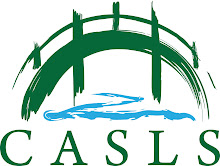Call for Papers
Special Issue of the CALICO Journal (31.1)
Web 2.0 and Language Learning: Rhetoric and Reality
Co-editors: Michael Thomas (University of Central Lancashire, UK) and Mark Peterson (Kyoto University, Japan)
This special issue of the CALICO Journal will address key issues concerning the role of Web 2.0 technologies in language learning and teaching, examining both the rhetoric and the reality behind a number of associated myths of digital education, from digital natives to digital literacy and 21st century skills. While Web 2.0 technologies have become more popular over the last five years and the case for their inclusion in education more powerful, it is still not clear to what extent they are being used in international language learning contexts and how effective they are for learning, collaboration and learner motivation.
E-readers, social media, smartphones and tablets are just some of the latest digital devices that promise to change the way we teach and learn foreign languages over the next decade. While these technologies are becoming more important in our social lives, steadily impacting all areas of our lives from communication to the way we collaborate and exchange information, more research is required on how they are being used rather than their potential. A major challenge of this special edition is to separate the rhetoric from the reality in terms of what is possible as well as desirable vis-à-vis language learning in a Web 2.0 digital education context.
The existence of a generation of learners who are skilled at the use of digital technologies remains one of the most frequently used terms and yet one of the biggest myths of the digital age. It reflects the tendency for educational technology to be rather easily aligned with technological determinism and an overly evangelist tone. This special edition encourages the submission of research papers that interrogate many of the uncritical assumptions of Web 2.0 and seeks to map a future agenda for research in the field.
For this special issue of the CALICO Journal, the editors invite original research-based articles that examine key issues around Web 2.0 technologies in actual language learning environments, both inside and outside formal classroom contexts.
Topics relevant to the special issue may include (but are not limited to) critical perspectives on:
• Key terms such as ‘digital divide’, ‘digital literacy,’ ‘digital natives/immigrants’, ‘technological determinism’
• digital game-based language learning
• Web 2.0 technologies in the language classroom
• e-learning and collaborative learning
• social networking applications and tools
• teacher professional development and digital technologies
• mobile-assisted language learning
• digital literacies
• telecollaboration
• social media and language learning
Please send inquiries and abstracts to both Michael Thomas (mthomas4 at uclan dot ac dot uk) and Mark Peterson (kinpaku at hotmail dot com) before 1st July 2012. Please list CALICO Journal Special Issue in the subject line of your email.
Publication Timeline
• July 1st, 2012: submission deadline for abstracts
(approx. 350 words outlining the purposes and content of the paper)
• July 15th, 2012: invitation to authors to submit a manuscript
• January 25th, 2013: full papers due
(author guidelines available at https://calico.org/page.php?id=514)
• April 1st, 2013: revised papers due
• December, 2013: publication of the special issue
About the Journal
The CALICO Journal is the journal of the Computer Assisted Language Instruction Consortium (CALICO) and is devoted to the dissemination of information concerning the application of technology to language teaching and language learning. The CALICO Journal is fully refereed and publishes articles, software reviews, and book reviews. The CALICO Journal (ISSN 0742-7778) appears three times a year (January, May, and September).
Schulze, M. CALICO Journal: CfP Special Issue Web 2.0 and Language Learning. CALICO-L listserv (24 May 2012, CALICO-L@LISTSERV.CALICO.ORG).
Subscribe to:
Post Comments (Atom)





No comments:
Post a Comment
Note: Only a member of this blog may post a comment.